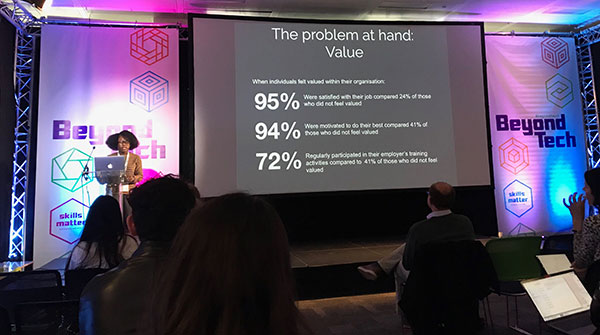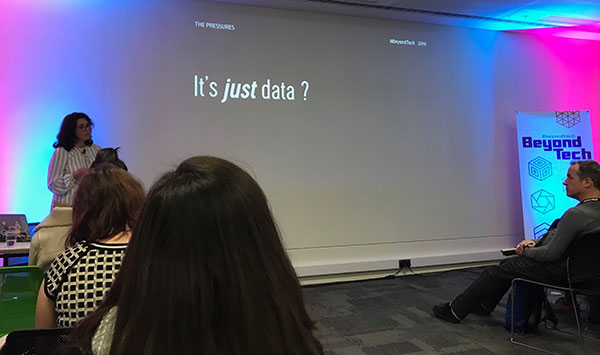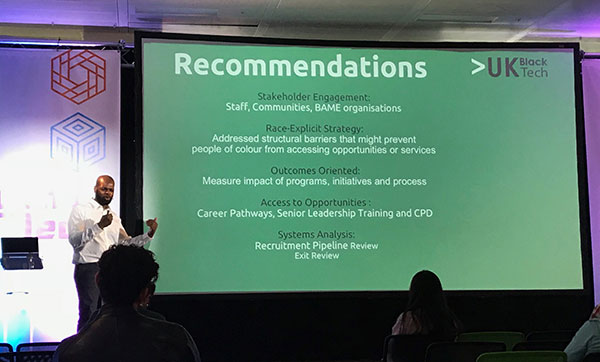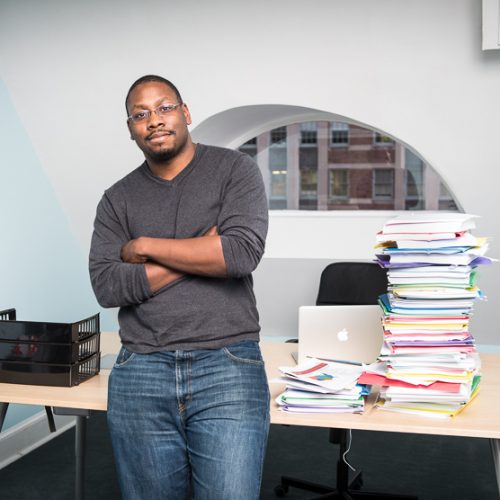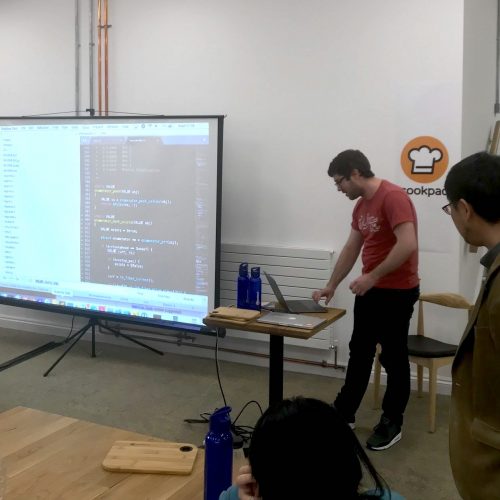Last week I attended the first ever Skills Matter Beyond Tech conference, which brought together leaders and influencers from around the world, to collectively look into the future of tech from the lesser viewed lens of ethics, diversity and inclusivity, tech for good and closing the skills gap.
Here are just a few of the key themes and arguments that came up at the conference, many of which urge us to look at things from a fresh perspective and empower us to take part in securing a positive future for ourselves, our society and for the tech industry – and go Beyond Tech.
As you read through, be sure to click on the names of some of the speakers to hear the talks and keynotes that inspired this blog:
Future proofing your tech company is easier than you think
When the world is ‘run by robots’, the best communicators, leaders, mentors, empaths, problem-solvers and creative thinkers will be championed.
When you’re up-skilling or looking for potential hires these are as, if not more important than tech skills.
If we are putting the right people with the right skills in leadership (and this might mean recognising the unrecognised and reimagining what it takes to be a good leader), they can lift up their colleagues – facilitating others through the fast-changing tech landscape.
As Russ Shaw said in his talk: “To survive in this landscape requires disruptive thinking”
Hear more from:
A line of code is for life, not just for Christmas
With our present and future lives dominated more and more by tech, and more often than not, free and open source software, we as users and makers of that tech hold a collective responsibility for the thousands of lines of code behind what we, more often than not, take for granted.
Be that at the high-end with users taking advantage of free platforms like WordPress, to the nitty gritty of developers using tools and frameworks such as node.js and React to build bespoke mobile apps.
Code is about trust. With tiny bugs and vulnerabilities in code that underpins our society and day-to-day life, we need to hold ourselves to account as developers and citizens to uphold this trust by taking ever greater responsibility for the lines of code we both use and put out into the world that might otherwise leave us vulnerable to attack.
Jamie put this quite succinctly in his keynote about AI by suggesting: “How do we hold an algorithm to account? We can’t.”
Hear more from:
Culture is at the heart of diversity
Whilst many organisations struggle to achieve diversity, particularly in the tech industry, the default is to focus simply on recruitment. As Sapphire Mason-Brown told the audience with an apt salt and pepper shaker logo, you can’t just ‘add diversity’.
So what’s next? Our current working practices, biases and working environment mean that women and those from BAME backgrounds are at a much greater risk of leaving the industry.
In order to create real change, companies must look hard at their culture and look for ways in which they can create an inclusive environment that supports a diverse team, before inviting diversity into the room.
“If we bring in people and just tell them to ‘be like us’, we’re not being inclusive or diverse.”
Hear more from:
Data is power
In Jamie Bartlett’s keynote he asked the audience to imagine a world where 60million people reacted to 60million individualised adverts based on the lifetime collection of their personal data. Really we’re not far from that now, particularly for the younger generation who have grown up with social media.
If you flip things the other way, we as a society are relying more and more on data from external sources to help us live our lives. Such as data around potential allergens in our food or data from smart meters that helps us lower our energy bills.
Yet there is no clear cut way in which businesses are required to report data and who should be held to account should something go wrong.
Companies that are trying to do good with data are being regularly stifled by the politics of data responsibility. They can’t make data better and provide quality and trust in the data that they provide to help people because there is no standard for data quality across the board. Of course, if we collect or hold data, we have a responsibility to ensure the data is accurate and high-quality.
But without proper global data privacy, high-standards for data reporting, and a solid infrastructure that holds those in power to account, we could see an unregulated future that spells disaster for everything from our shopping habits to our entire democracy.
Hear more from:
We all have the power to make change happen
As Mark Martin said: “Diversity is a business strategy, not an HR strategy”. Our business leaders have the power to take the reins, take responsibility and create the change that will secure an inclusive future in tech for generations to come.
But, leadership titles aside, most people employed within the tech industry have the power of privilege. We often don’t realise it, but we can use this power to make real change happen for under-represented groups.
Perhaps we can’t change the world alone but we can take small positive steps over judgemental action, to open up the conversation and support a diverse range of people in their jobs and lives.
A nice example of this is within the Tech Advocates Women in Tech working group who, when frustrated by a lack of change in some tech companies’ gender pay gap reporting, wrote to them to invite them to their own event offering free advice and support on how these organisations could make positive changes.
Hear more from:
Digital literacy is the new citizenship
Fake news and deeply personalised marketing is everywhere online, the dark web is pervasive and cyber bullying can have a devastating impact on young people’s lives.
We must step up and understand that the youngest generation in our society will be simultaneously the most digital-savvy generation (arguably more savvy than their own IT teachers) but also the most vulnerable to its darker side.
When the next generation grow up in the digital world, they need modern education to provide them with the ‘life skills’ for life online, with a basic understanding of its strengths and limitations, and the power it has to influence us all, so they can protect their own digital lives and wellbeing, and become our future leaders fighting for ours and the next generation’s digital rights.
Hear more from:
Other talk highlights include:
- Dennie Declercq – Networking at Conferences for Autistic People and Introverts
- Dr Charlotte Webb – Designing a Feminist Alexa: An Experiment in Feminist Conversation Design
- Jaya Chakrabarti – Digital Activism: Saving the World with Open Data
You can listen to all of the talks and keynotes from the conference on the Skills Matter Beyond Tech conference website.
If you’d like to discuss your startup or project, get in touch with Simpleweb today.

